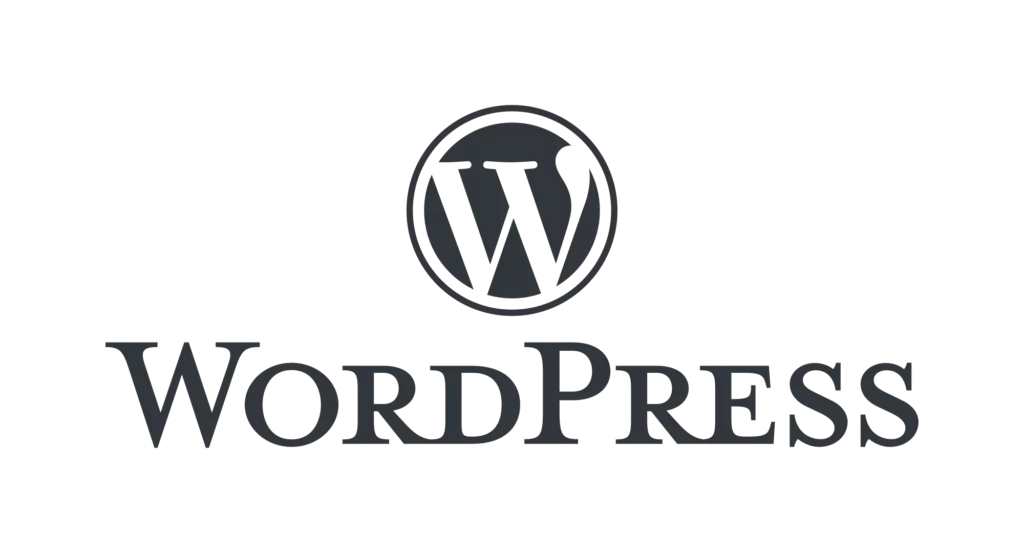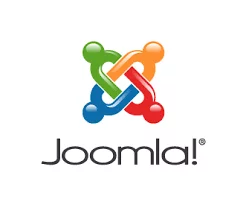In the fast-paced digital landscape of today, the days of relying solely on skilled programmers and developers to build and maintain professional websites and blogs are long gone. Content Management Systems (CMS) have revolutionized the way people manage their online presence, making it accessible to a broader audience. Among the most popular CMS platforms, WordPress and Joomla stand out. But which one is the ideal choice for your specific needs?

WordPress: The Versatile Giant

WordPress, the undisputed leader in the CMS realm, boasts an impressive 68% share of the market, according to Open Source CMS. Originally designed for blogging, WordPress has evolved into a versatile platform capable of handling digital magazines, corporate websites, and any site requiring frequent content updates. In fact, renowned organizations such as Forbes and the University of São Paulo (USP) rely on WordPress to power their online presence.
One of the key attributes contributing to WordPress’s popularity is its extensive and supportive community, continually driving innovation and expansion. Its dominance in the CMS market is a testament to its adaptability and wide-ranging applications.
Joomla: The Robust Contender

Joomla, with an 11% market share, stands firmly in second place, making it a substantial and well-regarded competitor to WordPress. Launched in 2005, Joomla has undergone continuous development and boasts over ten versions, earning its place in the CMS landscape. Companies like Porsche, Danone, and the Ministry of Education (MEC) have selected Joomla to build their websites, showcasing its capability to cater to diverse business needs.
Joomla Vs. WordPress:
According to W3Techs, a site monitoring technology metrics firm, WordPress powers 25% of websites, while Joomla claims a 2.8% share. These numbers might appear modest, but they are substantial when considering that over 57% of websites lacking a CMS are hand-coded with HTML pages.
| Aspect | WordPress | Joomla |
|---|---|---|
| Ease of Use | Known for its user-friendly interface, making it accessible for beginners. | Has a steeper learning curve and may be more challenging for those new to CMS platforms. |
| Popularity | Dominates the CMS market with a 68% share, making it highly popular and widely supported. | Holds a significant 11% market share and has a dedicated user base, although smaller compared to WordPress. |
| Customization | Offers a wide variety of themes and plugins for easy customization. | Provides extensive customization options but may require a higher level of technical expertise. |
| Content Management | Ideal for blogs, small business websites, and content-centric projects. | Suited for complex projects, forums, communities, and scheduled content management. |
| E-commerce | Integrates well with e-commerce platforms like WooCommerce, making it suitable for online stores. | May require additional extensions to handle e-commerce effectively. |
| SEO Optimization | Offers robust SEO features and has numerous plugins for SEO optimization. | Provides SEO capabilities but may require additional extensions for advanced SEO. |
| User Community | Benefits from a vast and active user community with extensive support and resources. | Has a dedicated user base and support community but is smaller in comparison to WordPress. |
| Updates and Security | Regular updates for core software, themes, and plugins. Security features and patches are readily available. | Offers regular updates and security features but may need more vigilant management due to complexity. |
| Real-World Use Cases | TechCrunch, American Red Cross, and small business websites often choose WordPress. | Porsche, Ministry of Education (MEC), and projects requiring intricate customization favor Joomla. |
| Learning Curve | Relatively simple to get started with and learn, making it beginner-friendly. | More complex to navigate, requiring time and effort to master. |
Shared Foundations of Joomla and WordPress:
Joomla and WordPress, despite their differences, share fundamental characteristics that underpin their content management systems. These shared foundations include:
1. Programming Language:

Both Joomla and WordPress are built using the PHP programming language. This common foundation facilitates the development of user-friendly and dynamic content for websites. PHP is widely recognized for its versatility and compatibility, making it a popular choice for web development.
2. Open Source:

Another key commonality is that both Joomla and WordPress are open source content management systems. This means that their source code is freely available to the public, enabling developers and users to access, modify, and customize the software without incurring licensing or usage fees. This open-source nature encourages collaboration, innovation, and the creation of professional, tailored website designs.
3. Plugins:

Both platforms boast extensive ecosystems of plugins. These plugins are add-on modules that can be easily integrated into the core CMS to enhance and extend the functionality of a website. The availability of a wide array of plugins for both Joomla and WordPress allows users to personalize and fine-tune their websites to meet their specific needs. This feature significantly contributes to the flexibility and adaptability of these CMS options, as it enables users to add features, such as e-commerce capabilities, SEO tools, social media integration, and much more, to their websites without the need for extensive coding or development work.
4. Database Management:

Both Joomla and WordPress rely on database management systems. Joomla primarily uses MySQL, while WordPress primarily utilizes MySQL or MariaDB. This database-driven architecture enables the efficient storage, retrieval, and management of website content and user data.
5. User-Friendly Content Creation:

Both CMS platforms prioritize user-friendly content creation. They provide intuitive interfaces for users to easily create, edit, and organize content, including articles, images, videos, and more. This simplifies the process of content management and encourages a broader range of users to participate in website updates.
6. Themes and Templates:

Joomla and WordPress offer themes and templates that allow users to change the visual design of their websites with ease. Themes control the overall look and feel of a site, while templates define the structure of individual pages. This shared feature enables website owners to achieve the desired aesthetics and layout without extensive design or coding expertise.
7. Community Support:

Both CMS platforms benefit from active and vibrant communities. Users can access forums, discussion boards, and online documentation to seek help, share knowledge, and troubleshoot issues. This extensive community support enhances the overall user experience and promotes collaboration among website owners and developers.
8. SEO-Friendly:

Joomla and WordPress are built with search engine optimization (SEO) in mind. They provide tools and features to optimize website content for search engines, helping to improve the site’s visibility and search rankings. This is crucial for attracting organic traffic and ensuring a wider online reach.
9. Multilingual Capabilities:

Both CMS platforms offer multilingual support, allowing users to create and manage content in multiple languages. This feature is valuable for websites targeting global or multilingual audiences, as it streamlines content translation and localization.
10. Regular Updates:

Joomla and WordPress place a strong emphasis on security and functionality updates. Both CMS systems release regular updates to address vulnerabilities, enhance features, and improve overall performance. Staying up to date with these updates is essential for maintaining the security and stability of websites built on these platforms.
11. Mobile Responsiveness:

In an era where mobile devices are prevalent, both Joomla and WordPress prioritize mobile responsiveness. Websites created with these CMS platforms are designed to adapt to different screen sizes, ensuring a seamless user experience on smartphones and tablets.
Joomla Use Cases
1. Complex Projects:
Joomla is the go-to solution for handling intricate websites that demand a high degree of customization.

Real Case: Porsche, the renowned automobile manufacturer, utilized Joomla’s capabilities to create a multifaceted website that seamlessly integrates interactive features and provides an engaging user experience.
2. Forums and Communities:
Joomla excels at constructing online forums and social communities.
Real Case: The Ministry of Education (MEC) leveraged Joomla to build a thriving online educational community, fostering communication and collaboration among educators and students.
3. Scheduled Content:
When your project necessitates the management of scheduled content releases or event coordination, Joomla shines.

Real Case: An event management company, EventPro, relies on Joomla to organize and publish event-related content, ensuring timely updates and a well-structured calendar of events.
WordPress Use Cases
1. Blogs:
WordPress, rooted in its blogging origins, continues to be the premier choice for bloggers. It offers an extensive array of themes and plugins tailored to bloggers’ needs.

Real Case: TechCrunch, a leading technology news site, relies on WordPress to power its blog section, providing a user-friendly interface for bloggers and readers alike.
2. E-commerce:
WordPress seamlessly integrates with e-commerce platforms like WooCommerce, making it a top choice for e-commerce sites.

Real Case: The American Red Cross uses WordPress and WooCommerce to facilitate online donations, showcasing the platform’s flexibility in managing online transactions securely.
3. SEO Optimization:
WordPress offers robust SEO features, making it an ideal choice for websites seeking strong search engine visibility.

Real Case: Yoast, a leading SEO plugin provider, uses WordPress for its own website. This demonstrates WordPress’s prowess in optimizing content for search engines, as well as its popularity among SEO experts.
Conclusion:
The choice between WordPress and Joomla hinges on your specific project requirements and your level of expertise. WordPress is ideal for beginners, bloggers, small businesses, and those seeking a user-friendly platform with extensive plugins. Joomla is better suited for complex projects, forums, and businesses with the need for advanced customizations. Your decision should align with your goals, technical abilities, and the unique demands of your website. Both CMS platforms have their strengths, and by considering your needs, you can make an informed choice.
FAQs on Joomla Vs. WordPress:
Which CMS is better for blogging?
- WordPress: WordPress is the leading choice for bloggers. It was initially designed for blogging, and it offers a wide range of themes and plugins tailored to bloggers’ needs.
- Joomla: While Joomla can be used for blogging, it’s not as specialized for this purpose as WordPress.
Which CMS is better for e-commerce websites?
- WordPress: WordPress offers excellent e-commerce solutions, with WooCommerce being a popular choice. It’s well-suited for small to medium-sized online stores.
- Joomla: Joomla has VirtueMart, a powerful e-commerce extension. It’s an ideal choice for businesses that require advanced e-commerce features and customizations.
Which CMS is better for SEO?
- WordPress: WordPress is known for its SEO-friendliness. Numerous SEO plugins are available, making it easier to optimize your site for search engines.
- Joomla: Joomla also offers SEO capabilities, but it may require more manual optimization and careful handling of extensions to achieve optimal SEO results.



